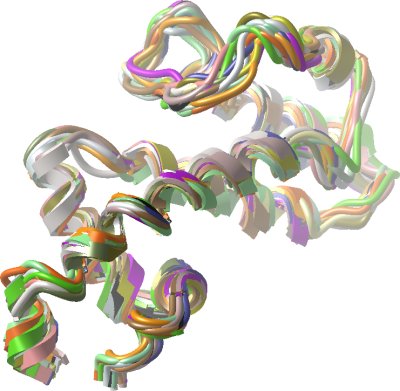아래 글은 [Cognitive daily]블로그의 게시 내용을 번역한 것입니다.
Last night in the U.S. many televisions were tuned to one of the
biggest spectacles of the year: the American Idol finale, where America
would learn which singer had been chosen as "America's favorite" (or,
more cynically, who inspired the most teenagers to repeatedly dial
toll-free numbers until all hours of the night). Greta and I are suckers
for this sort of thing, so we watched along with the rest of the
nation.
지난 밤에 대부분의 미국 사람들은 누가 'America's favorite'으로 뽑히는 지를 알기 위해 '아메리칸 아이돌 파이널'을 보고 있었다. 그레타와 나 또한 이 사람들의 대열에 동참하기로 했다.
What impressed me about the show wasn't so much the prodigious vocal
talents of the two finalists, but how everything was put together so
hastily: there had been only six days from the previous week's episode
(where the two finalists were revealed), and during this time each
finalist learned at least three or four songs. The musicians who played
along with them had no score to follow; they had to commit the songs to
memory. Everything went off without a hitch, because these professional
musicians routinely hold an astonishing variety of music in their
memories.
내가 깊은 인상을 받았던 부분은 결선에 올라온 사람들의 노래 실력이 아니라, 그들의 노래 배우는 속도였다. 지난 주 방영부터
결선까지 6일의 시간이 주어졌고, 그 동안 각각의 결선 주자들은 최소 3개에서 4개의 곡을 외워야 한다. 이들과 연주하는
뮤지션들은 따라할 악보도 없었다. 그들은 오로지 곡을 외워야 했다. 그럼에도 불구하고 그들은 막히는 데 없이 연주를 잘 해냈는데,
이런 프로 뮤지션들은 놀랄정도로 다양한 음악들을 기억에 저장하고 있다.

If you've ever seen a symphonic concerto, you probably noticed that
the soloist usually performs the entire piece -- lasting 20 minutes or
more -- from memory: thousands of notes, all played with perfect pitch
and intonation. Clearly many musicians have exceptional memories for the
songs they play. So does this ability to remember hundreds of songs
transfer into other types of memory? While there's been some research
into musicians' memory, the results have been mixed. Most studies show
that musicians have better memory for words than non-musicians, but
there's less evidence that musicians can remember spatial information
better. In one study, musicians couldn't recall locations on a map any
better than non-musicians.
만약 교향악 연주를 본 적이 있다면, 독주자가 20분 또는 훨씬 길게 솔로를 연주하는 것을 봤을 것이다. pitch와
intonation을 지키며 연주해야 할 음표가 수천개나 넘는데도 말이다. 확실히 많은 연주자들이 자신들의 곡을 외울 때 무언가
(일반적인 기억력과)다른 기억력을 발휘하는 것 같다. 이런 곡을 외우는 능력은 다른 종류의 기억력이 있음을 말해주는가? 그 동안
음악가의 기억력에 관한 연구들이 있었지만, 결과들이 혼합되어 있다. 대부분의 연구 결과들은 음악가가 non-musican에 비해
단어에서 월등한 기억력을 보인 반면, 음악가가 공간적 정보를 더 잘 기억하는지는 분명치 않다. 한 연구결과에선 음악가가
비전문가보다 지도 위치를 잘 못 외우는 것으로 드러났다.
So a team led by Lorna Jakobsen tested 36 college students, 15 of
whom had an average of 11.5 years of formal piano instruction and had
passed a rigorous performance examination, while the rest had less than a
year of musical training.
Two tests were given. In the first, the students listened to a list
of 16 words chosen from one of four different semantic categories (e.g.
birds, furniture, etc.). The list was presented five times, after each
of which they tried to remember as many words as possible. Next they
were presented a different list of 16 words as a filler interference
task. Then they were asked to try to recall the original 16 words again,
and accuracy was tracked. Then everyone took the separate visual test,
and after completing that (about 20 minutes later), they were again asked to remember the original 16 words again. How did they do? Here are the results:
Lorna Jakobsen은 36개의 college 학생들을 대상으로 실험을 했다. 피험자중 15명은 평균 11.5년동안
음악 교육을 받았으며 엄격한 기준에 의해 선발된 반면, 나머지 반은 1년도 채 못되는 음악 교육을 받은 사람들이었다.
두가지 실험이 진행되었다.
실험 1
먼저 학생들은 4개의 범주(e,g. 새, 가구 등)중 하나에 속하는 단어를 총 16개 듣는다. 이 목록은 다섯 번 제시되고,
목록 제시 후 최대한 많은 단어들을 기억해야 한다. 그 다음 또 다른 16개의 단어가 방해 과제로 제시된다. 그 후에 그들은
또다시 처음 제시됐던 단어들을 회상해야 한다. 그 다음 피험자 전원은 시각 테스트를 거치고, 그 후에(20분 뒤) 또다시 처음
제시되었던 단어들을 기억해야 한다.
1 2 3 4 5 6
단어 과제 A -> 회상검사(A) -> 단어 과제 B -> 회상검사(A) -> 시각 검사 -> 회상검사(A)
결과는 다음과 같다.

The students were actually tested on the words in two different ways:
free recall, and cued recall, which was a multiple-choice test. The
musicians performed significantly better than non-musicians in every
test except the short-delay free recall. So this confirm!ed the previous
research suggesting that musicians are better than non-musicians at
remembering words.
학생들이 회상검사를 받을 때 두 가지 다른 방법이 사용되었다. 하나는 자유 회상과제였고, 또 하나는 multiple
choice 과제였다. 음악가들은 비전문가보다 수행이 뛰어났다(단어 제시후 바로 기억을 하게 한 경우는 제외). 이 결과는
음악가들이 비전문가보다 단어 기억 능력이 뛰어남을 증명해준다.
The interference task was similar, but it focused on visuals. The
students saw 15 simple drawings, presented one at a time. The drawings
all consisted of a single line and a dot, arranged in different
orientations. As with the word task, the students saw the pictures five
times, trying to draw by hand as many of the pictures as they could
recall each time. After they had done the word memory test, they
returned about 15 minutes later to see how many of the drawings they
could remember. The results were similar: musicians remembered
significantly more of the drawings than non-musicians.
실험2
실험2에서의 방해과제는 실험 1과 유사했지만 주로 시각적인 측면에 초점을 두었다. 학생들은 15개의 간단한 그림들을 한번씩
보게 된다. 그림들은 단일 선들과 점들로 이루어져있고 전부 다른 각도로 기울어져 있다. 학생들은 단어태스크와 함께 그림들을
다섯번씩 보면서 기억해낼 수 있는 최대한 많은 그림들을 손으로 그리게 했다. 학생들이 단어 과제를 수행한 다음 15분 후에 얼마나
많은 그림들을 기억해 낼 수 있는지를 알아봤다. 결과는 실험 1과 비슷했다. 음악가들이 비전문가보다 훨씬 많은 그림을 기억했다.
The researchers also paid careful attention to how the
students were recalling both the words and pictures. Musicians, they
found, used different strategies. With words, they were more likely than
non-musicians to group the words into similar categories (like "eagle"
and "robin"). With the pictures, non-musicians tried to verbalize the
pictures, while musicians did not.
연구자들은 학생들이 '어떤'방식으로 기억을 하는지도 유심히 관찰했다. 음악가들은 일반인과 다른 전략을 사용했다. 단어 기억
테스트시 음악가들은 단어들을 유사한 범주로 묶어서 기억했다. 그림 기억 테스트의 경우 일반인들은 그림을 언어화하여 외우는 반면,
음악가들은 그렇지 않았다.
In both cases, the musicians' strategies proved to be more effective,
and they also seem to duplicate strategies experts use to remember
large quantities of information: they chunk it into related groups so
that it's easier to recall later on. When they remember songs, musicians
rely on the fact that the notes are related to each other (and in fact
are no better than non-musicians at remembering random sequences of
notes). They appear to apply a similar strategy to other memory tasks.
두 경우에 비추어보건데, 음악가들의 기억 전략은 매우 효율적이며 기억 수행에서 전문가들이 사용하는 전략과 동일한 전략을
사용하는 것으로 보인다. 음악가들은 단어들은 연관된 그룹으로 묶어서 회상이 쉽게끔 만든다. 음악가들은 곡을 기억할 때 하나의
음표와 다른 음표가 연결되어 있는 방식에 근거해서 기억을 한다(음악가나 일반인에게 무선으로 배열된 음표를 들려주면 기억력 수행에
차이가 없다). 음악가들은 음악 외에 다른 분야에도 동일한 전략을 사용하는 것으로 보인다.
Jakobson,
L., Lewycky, S., Kilgour, A., & Stoesz, B. (2008). Memory for
Verbal and Visual Material in Highly Trained Musicians Music Perception, 26 (1), 41-55 DOI: 10.1525/mp.2008.26.1.41
출처: Cognitive daily.
http://scienceblogs.com/cognitivedaily/2009/05/musicians_have_better_memory_-.php

![]() A.M. Owen, A. Hampshire, J.A. Grahn, R. Stenton, S. Dajani, A.S. Burns, R.J. Howard, & C.G. Gallard (2010). Putting brain training to the test. Nature [In Press].
A.M. Owen, A. Hampshire, J.A. Grahn, R. Stenton, S. Dajani, A.S. Burns, R.J. Howard, & C.G. Gallard (2010). Putting brain training to the test. Nature [In Press].















